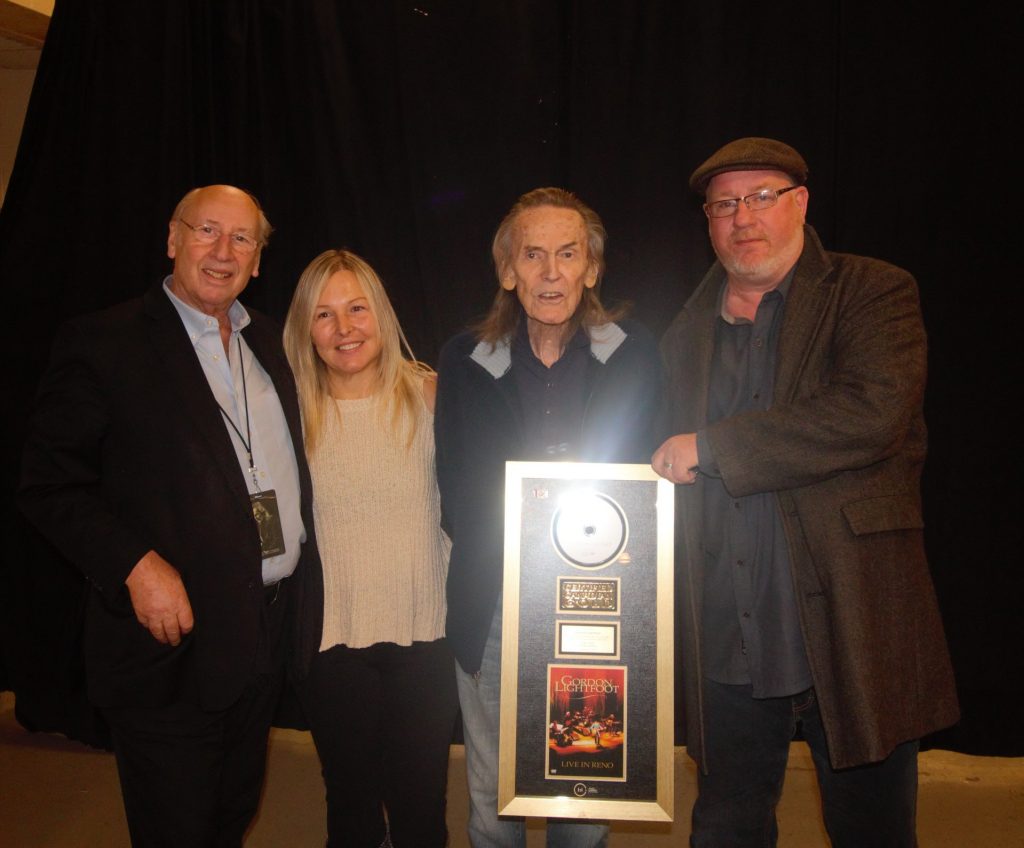Last week, TVO’s The Agenda with Steve Paikin focused an episode on “Copyright for the Digital Age,” which featured impactful remarks on the importance of fair copyright for creators by Canadian musician, label owner and music festival founder Miranda Mulholland. Joining Mulholland on the panel discussion were composer Donald Quan and activist and author Cory Doctorow.
“Recent changes to copyright rules in Europe are designed to better compensate artists whose work fuels the revenue earned by digital platforms such as YouTube,” said host Steve Paikin at the outset of the episode. “But some have expressed concern that the new regulations will stifle innovation and harm free speech. As Canada updates its own copyright regulations, should these new rules serve as a roadmap?”
Mulholland, who has been increasingly sought-after as an artist advocate, brought a clear and personal message to the discussion.
On the importance of strong copyright laws for artists:
Paikin: “Miranda, how about for you – how much does copyright matter to your bottom line?
Mulholland: “Well it matters to me, because it matters to my community. I think we live in an ecosystem, so this is very, very important. For me, I’ve been a side-person, I was in Great Lake Swimmers for 7 years, I was in Bowfire … most of my income comes from performing. This is a problem though, because it means if I ever wanted to take a break from the road – say, have a child – and have some kind of time where I wasn’t just paid for when I was exactly on the stage, then loose copyright laws don’t allow me to have any kind of income coming back.”
On the problem of the current definition of a “sound recording” in the Copyright Act:
Paikin: “You do scoring work – do you get royalties for that?”
Mulholland: “Well, actually, that’s a very interesting one, because as of right now, I do a lot of work with composers, so I play for film and television. But in Canada, unlike 44 other countries around the world, the performer is not paid for soundtracks. So I am not actually paid when anything I’ve played on is (aired) around the world. I do get paid for anything I compose on.”
On the need for a functional marketplace for creators’ work:
Paikin: “It’s not enough obviously to sell tickets to a concert, or to sell records … Are you in the t-shirt business now?”
Mulholland: “Well, no, I’m not… I do feel as though we are close to finding some sort of a market. What we want is a marketplace. And YouTube is really our biggest disrupter in the marketplace, because while Spotify and Apple Music are trying really hard to pay creators and try come up with some sort of market share version of what this is going to be, or how it’s going to be, (YouTube) is giving it away for free. … So of course I’ve portfolio’d my income though, because I absolutely have to. I’m an entrepreneur, but I also play for hire, so I play with Jim Cuddy, I work for SoulPepper Theatre – I have so many hats that I have to wear, but I am so far not in the t-shirt business.”
Although the Music Technology Policy blog has identified some examples of what Chris Castle deemed “sloppiness” in the questions – such as The Agenda citing a crowd-sourced job search site to suggest Canadian authors earn an annual salary of $61,798; a marked departure from The Writers Union of Canada’s study finding an average annual income of $9,380 – Mulholland calmly disputed the flawed statistic.
After Paikin cited a quote opposing copyright protection measures from German MEP Julia Reda, whom Paikin neglected to mention is the sole member of the European Parliament from the Pirate Party, Mulholland expertly brought the conversation back to focus on the need for regulations that supports creators.
“I think that one of the biggest problems is that those people who are responsible for those copyright filters don’t want to pay people to do that, so they’re trying to implement this software that maybe can’t catch it all. But I really think that this type of fear-mongering isn’t helpful,” said Mulholland. “We have history to show us, since the beginning – we have the printing press, the invention of compass – history shows us that there are disruptions that happen, and then there is a time that shifts, and people that come in and try and monetize these periods of disruption, and then regulation needs to set in. And fear-mongering doesn’t help… the most important thing is that people in the EU, people in Canada, and in the US are actually listening now to creators. And that is the most important thing that we’re seeing – the sea-change that’s different. … We’re seeing a real change for the better, and finding technical reasons to oppose this, I think is just ludicrous.”
This clear response to this topic shows why Mulholland is increasingly being invited to speak on artist rights issues. She recently appeared at the World Trade Organization Public Forum 2018, presented a keynote at the Banff World Media Festival, and delivered a keynote at Midem 2018.
Mulholland also made an impactful appearance before the Standing Committee on Canadian Heritage’s study of remuneration models for artists and creative industries, where she shared her personal experience as an artist living in the Value Gap. She also called for action for creators in the NAFTA negotiations at an ACTION for Trade event in Washington, D.C., and was the first creator to deliver a keynote address at the Economic Club of Canada.
The full program is available on TVO’s website, and is embedded below.















Music Canada